On the back of a new report into the future of sustainability, Chief Executive Dr Sally Uren reflects on how organisations are harnessing the disruption caused by COVID-19 to put us on a ‘transform’ trajectory – one set to create a truly regenerative future in which we recognise the interconnected nature of human, planetary and economic health, and deliver a just transition towards a net zero global economy. Sally notes we’re at a dangerous crossroads for sustainability right now, and we are all in a position to take action.
Forum for the Future has today launched its latest Future of Sustainability report – From System Shock to System Change – Time to Transform, which reveals five key systemic and dynamic areas set to influence the decade ahead, and a set of future trajectories emerging from the COVID-19 crisis.
The report draws on crowd-sourced signals of change – all featured on this site – along with extensive desk research and engagement with more than 100 business and civil society leaders worldwide. As the pandemic continues to irreversibly shock the very ways we live our lives, the four pathways we’re starting to see prevail, each based on a distinct mindset, are:
- Compete and Retreat: Characterised by a retreat into national borders driven by the perception that there is not enough to go around, resulting in the strengthening of existing nationalist dynamics, the gradual collapse of what’s left of globalisation and international collaboration, and the emergence of fragmented regionalism.
- Discipline: Characterised by greater state control to manage public health and safety, resulting in the ramped up use of technology for automation, remote connection, surveillance and control, as well as a concurrent sacrifice of personal privacy, in order to keep growth and global interconnection going as ‘normal’.
- Transform: Characterised by a growing understanding of the deep connections between human and planetary health, using the pandemic recovery as a ‘reset’ to catalyse a fair and equitable zero carbon transition and a shift towards new business and economic models based on resilience and regenerative thinking.
- Unsettled: Characterised by a continued inability to settle on a ‘new normal’ due to ongoing discontinuity and disruption, resulting in a volatile and strange world beyond previous human experience.
While our understanding of these trajectories is still evolving, exploring them enables us to track and understand change, and to focus attention and efforts on what’s desperately needed: fundamental shifts in how we live and work.
FOCUSING ON TRANSFORM
Forum believes the Transform trajectory is what must prevail.
It’s here we see new, sustainable business models scale, the goals of the global economy broaden to include rebuilding social and environmental value, regenerative practices mainstream, and nature-based solutions become the norm. Only a Transform trajectory will deliver the systemic change needed to solve our climate, biodiversity and public health challenges.
There is growing momentum that should give us all hope: Amazon has announced a $2 billion Climate Pledge Fund to invest in companies building products, services and technologies to decarbonise the economy and protect the planet.
Unilever has established an ambitious Climate and Nature Fund to invest in landscape restoration, reforestation, carbon sequestration and water preservation projects. They have also made rapid pivots across their supply chain to meet the surge in demand for home and personal care/hygiene products, particularly hand sanitiser, alongside a strong focus on ensuring safe, healthy working environments for both office and factory-based employees.
The Laudes Foundation is setting its sights on supporting the redesign of the global economy to put regenerative principles at its core. Elsewhere, regenerative practices are gaining traction at Walmart, Extinction Rebellion, and continue to be central to Olam’s work – particularly around soil regeneration and improving farmer livelihoods; Amsterdam is exploring adopting ‘doughnut economics’ to help build a future with a decent quality of life within natural limits; and other major cities are reconfiguring to promote cycling over car use.
Global commodities trader, Cargill Inc, is to begin paying American farmers for capturing carbon in the soil of their fields and cutting fertilizer runoff. Across the Atlantic, businesses representing 80% of the UK’s meat sector have vowed to slash emissions and waste on a “farm-to-fork” basis, as investors make fresh pleas for the global meat industry to accelerate decarbonisation efforts.
Or take Google India’s announcement of a partnership with the Central Board of Secondary Education, which will see them train over 1 million teachers across 22,000 schools to deliver blended education. This is in addition to its $10 billion fund to speed up India’s digital economy.

ING Bank has made available record loans for rooftop solar in Asia Pacific, while the Philippines Department of Agriculture now aims to give farmers the opportunities and tools to become processors by instituting a centralised food processing facility that converts excess produce into high-value products.
Meanwhile, the European Commission, having launched Europe’s Green New Deal in December, is now using it to shape the European post-COVID-19 recovery plans.
Specifically on the social justice side, there’s Hawaii, which is calling for a feminist economic recovery plan, produced by the state’s Commission on the Status of Women and aiming to deliver gender equality. This will mean deep cultural change and incorporation of the unique needs of all women. And of course, there is the ever-growing Black Lives Matter movement, which is confronting head on the deep systemic racism and inequality entrenched in many of our cultures. Corporate voices backing the movement are getting louder, with recognition of the role organisations must play in driving change.
These are all great examples – and there are many more listed in the report – but transformation won’t be easy.
SO WHERE CAN WE FOCUS?
From System Shock to System Change is calling on leaders across society to use the COVID-19 recovery process to implement bold solutions that place the world on a Transform trajectory.
We’re urging the following actions (among others!):
Businesses must: reset their purpose beyond delivering profit and shareholder value; adopt regenerative models that enhance ecosystems and societies; pursue greater transparency and accountability; and advocate for bolder action and higher standards of regulation with governments
Governments must: steer their COVID-19 response into a just transition to an economy that is fair, sustainable and resilient to future crises; explore new ways of defining economic success that go beyond GDP; and embrace truly participatory approaches to civic engagement
Investors should: actively drive investment into an economic system which has reset its goals to enable a regenerative future; use a carbon price in all financial analysis; and broaden and deepen analysis of environmental, social and corporate governance (ESG) risk.
Civil society must: shift from a mindset of competition to one of collaboration to create change; test new models of working and organising; and contribute to positive new narratives that recognise the interconnections between human needs and planetary health.
These actions are long overdue and we are running out of time. The decisions we make in the next 6 to 18 months will either lock us into unsustainable practices, or set us firmly on the right path. It’s a dangerous crossroads and the stakes have never been higher.
This piece draws from one originally published at Forum for the Future.

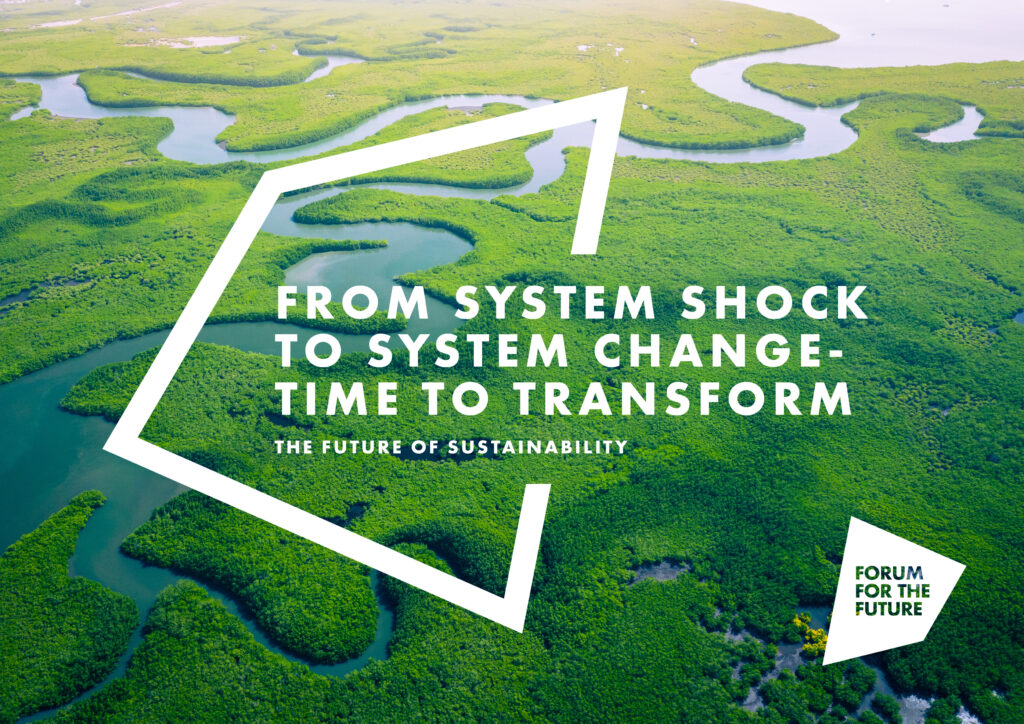
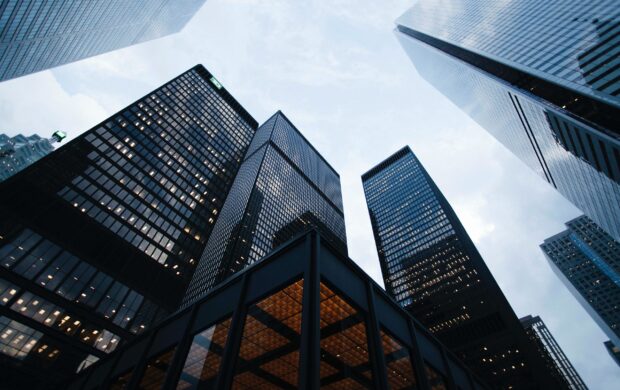

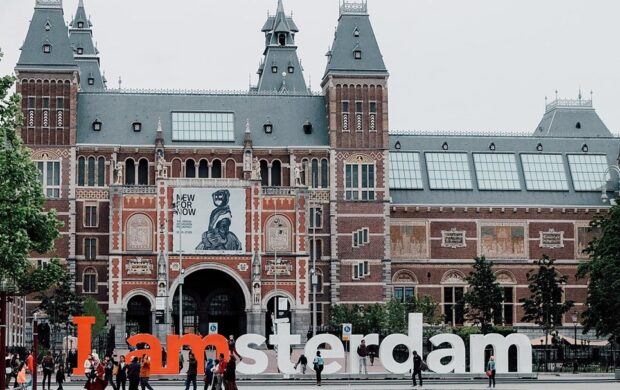
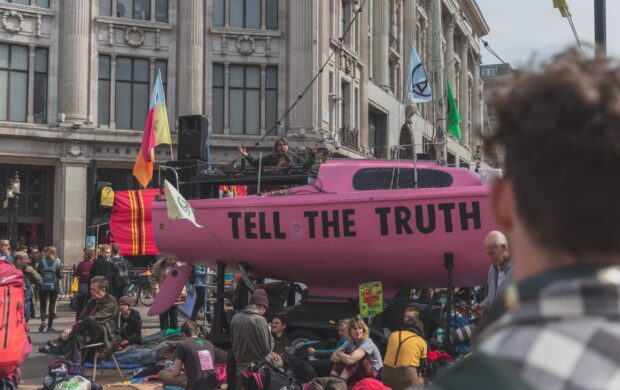




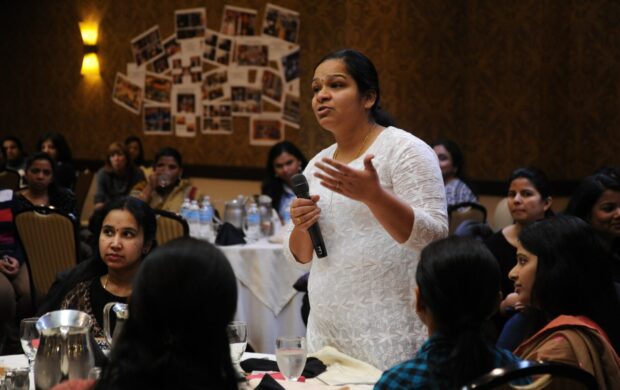









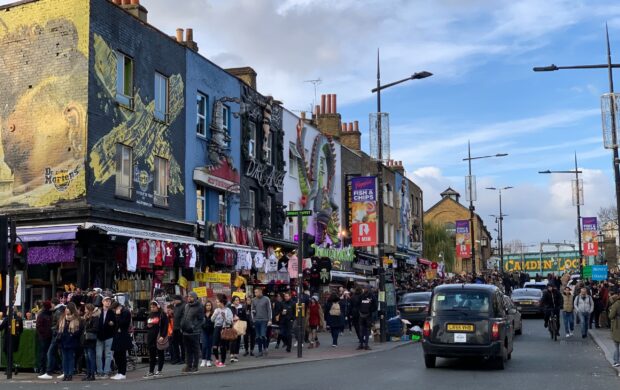

Join discussion